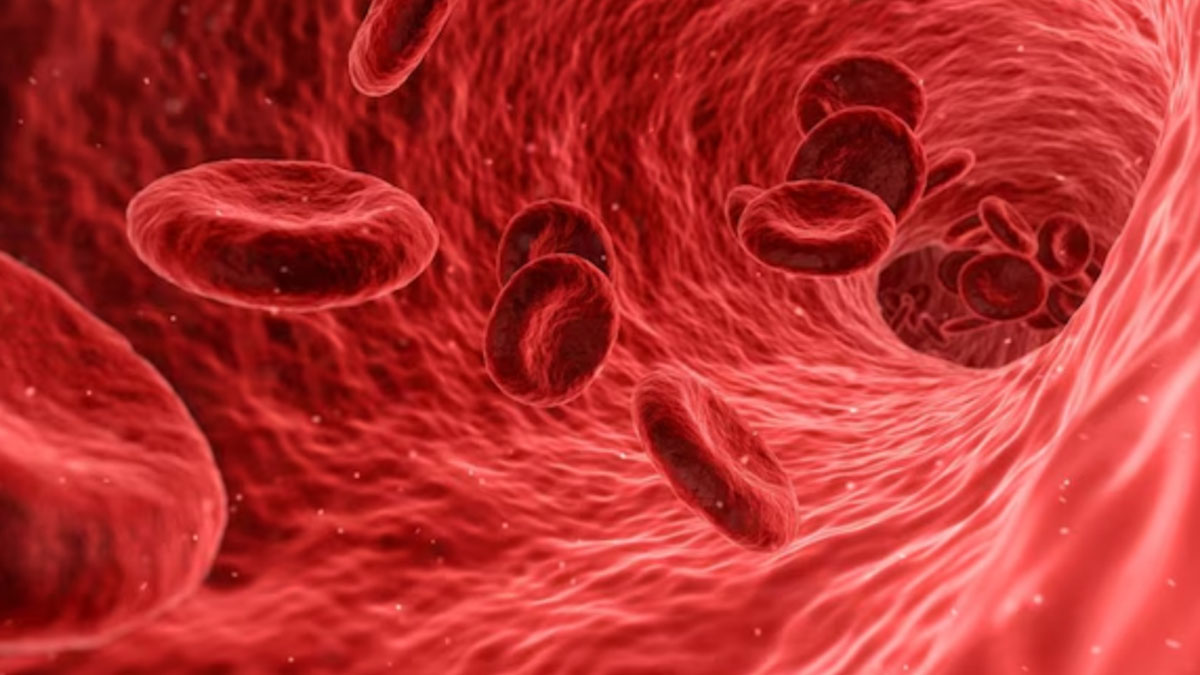
In a groundbreaking scientific discovery, researchers have identified a new blood group system called MAL, finally solving a medical mystery that has baffled experts for more than 50 years. Led by NHS Blood and Transplant (NHSBT) and the University of Bristol, this research marks a significant step forward in understanding blood types and improving the safety of blood transfusions. The discovery sheds light on the AnWj antigen, a rare and elusive marker, offering new hope for patients with rare blood types.
How the MAL Blood Group Was Discovered
The origins of this discovery trace back to 1972 when a pregnant woman’s blood sample revealed an unusual anomaly: it lacked an antigen, known as AnWj, found in all other known blood types. For decades, this anomaly remained a mystery. However, through persistent research and advanced genetic techniques, scientists finally identified the genetic basis for the AnWj antigen and named it the MAL blood group, the 47th known blood group system.
- Key Research: This breakthrough study was published in Blood, a journal by the American Society of Hematology.
- Key Figures: Louise Tilley, Senior Research Scientist at NHSBT, has been working on this project for nearly 20 years. She highlighted that the discovery would significantly improve care for patients with rare blood types by enabling more accurate identification and treatment.
The Role of the AnWj Antigen
The AnWj antigen, present on the surface of red blood cells, is found in more than 99.9% of the population. However, a small group of people, either due to genetic factors or certain illnesses, lack this antigen. These individuals face serious health risks if given AnWj-positive blood during transfusions. The discovery of the MAL blood group allows for a deeper understanding of this antigen and its implications.
- Genetic Cause: Researchers found that the absence of the AnWj antigen is due to a genetic deletion in the MAL gene. People who are AnWj-positive express the Mal protein on their red blood cells, while those who are AnWj-negative lack this protein.
- Implications for Transfusions: People who are AnWj-negative must receive AnWj-negative blood to avoid life-threatening transfusion reactions. Before this discovery, identifying such rare blood types was extremely difficult.
The Process Behind the Discovery
Researchers used advanced genetic technology to solve this long-standing mystery. The key method was whole exome sequencing, which involves analyzing all the DNA that encodes proteins.
- Whole Exome Sequencing: This technique helped the research team pinpoint that the rare inherited AnWj-negative cases were caused by homozygous deletions in the MAL gene. This allowed them to finally confirm the MAL blood group system.
- Advanced Gene Testing: According to Professor Ash Toye from the University of Bristol, their ability to manipulate gene expression in blood cells was crucial in confirming the AnWj blood group identity. This achievement helps identify rare donors and aids patients in need of precise blood matching.
What This Discovery Means for Patients
The discovery of the MAL blood group has enormous implications for medical care. It paves the way for more accurate genetic testing, ensuring that people with rare blood types like AnWj-negative can be identified early, making transfusions safer.
- Genotyping Tests: Now, new genotyping tests can be developed to identify AnWj-negative individuals and donors. These tests will be integrated into existing genotyping platforms, making it easier to match rare blood types with the right patients.
- Better Transfusion Safety: For patients who lack the AnWj antigen, receiving the wrong type of blood can lead to severe, life-threatening reactions. This new system will allow doctors to ensure that patients with rare blood types receive the correct blood during transfusions, improving their chances of survival.
- Impact on Global Healthcare: Each year, around 400 patients worldwide require such precise blood matching. With the MAL blood group discovery, these patients can now receive safer, more effective blood transfusions.
The Future of Rare Blood Type Management
This discovery is not just a scientific milestone but has practical, life-saving applications for people with rare blood types. Researchers believe that as more is understood about the MAL blood group, the medical community will be able to offer even better care for individuals with rare blood conditions.
- Ongoing Research: The discovery of the MAL blood group system marks a new chapter in hematology. Continued research will focus on improving blood matching techniques and possibly uncovering more rare blood group systems.
- Global Impact: This advancement is expected to benefit patients worldwide, particularly those with rare genetic conditions. With more precise blood matching, healthcare providers can minimize risks and provide better outcomes for patients in need of transfusions.
Conclusion
The discovery of the MAL blood group has solved a 50-year-old medical mystery and represents a major advancement in hematology. This finding not only uncovers the genetic basis of the AnWj antigen but also opens doors to safer blood transfusions for individuals with rare blood types. Through the use of advanced genotyping tests, patients who were once difficult to treat due to their rare blood type can now receive life-saving transfusions without the risk of severe reactions. This milestone has the potential to transform the way rare blood types are managed globally.
